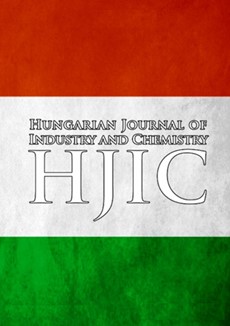Hydroformylation of Propylene With Hydrogen, Rh4(CO)12 and Carbon Monoxide
DOI:
https://doi.org/10.1515/521Abstract
Propylene reacts with H2 and Rh4(CO)12 at room conditions to yield butyraldehydes and Rh6(CO)16. With higher olefins, isomerization and hydrogenation are observed as side reactions. the rate of butyraldehyde formation is of the first order with respect to Rh4(CO)12 and H2, and is inhibited by CO, when the latter - if present - is incorporated into the reaction product and partially converts the system into a catalytic one with regard to rhodium. The rate determining step is apparently the reaction of Rh4(CO)12 with H2 to give mononuclear rhodium carbonyl hydrides and the hydroformylation of propylene is accomplished by these latter species.Downloads
Published
1973-02-02
Issue
Section
Articles
How to Cite
Hydroformylation of Propylene With Hydrogen, Rh4(CO)12 and Carbon Monoxide. (1973). Hungarian Journal of Industry and Chemistry, 1(1), 53-62. https://doi.org/10.1515/521




